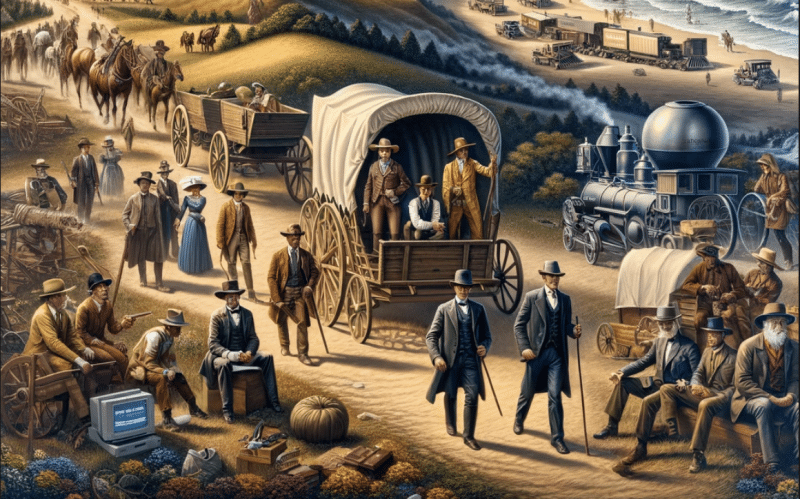
When you get right down to it, we have romanticized the term “pioneer” to a point where it’s almost completely removed from its original meaning.
Pioneer is a word we like to throw around in the business world especially. Bill Gates is a pioneer. Steve Jobs was a pioneer. Same for Ted Turner, Henry Ford, John D. Rockefeller, and any multi-billionaire who’s had a plaque and a scholarship dedicated in their honor.
We’ve conflated “pioneer” with “achiever” and too easily forget that the original pioneers – the wagon wheel Oregon Trail “you have died of dysentery” types – were the kind of folks who’d head off in pursuit of a new opportunity without a second thought about catching an arrow in the back.
Being a pioneer was simply an insane notion. For the opportunity to realize the reward of claiming part of the undiscovered country, you’d make the bargain of trying to survive native peoples, food scarcity, any of dozens of predatory beats, the likelihood of slipping and falling in a ravine, drowning while fording a river or running into those pesky bacteria and viruses trying to turn your guts into a paste.
Now that we’ve spent a moment in Daniel Boone land, let’s bring this story back to a more familiar time of indoor plumbing and refrigerated food.
If we can all agree that there was a pretty considerable risk profile in being a pioneer, you don’t have to squint too hard to see the connection lots of folks try to make when comparing entrepreneurs with our nation’s trailblazers. Just like a whole lot of pioneers wound up face-down on the prairie, most businesses meet their demise in less than five years because of the risks involved. That’s especially so in emerging industries where there’s no survival infrastructure in place and hardly any established rule of law.
Think back to Gates, who’s now 40-plus years removed from his start in the software business and is at times the world’s richest man thanks initially to the Windows operating system. Gates and Windows survived the frontier of the PC era and came out on top, while others like Visi On, TopView, GEM, and DeskMate tried and died quick deaths before they could get far enough to even think about being pioneers.
Of course, a whole lot of folks headed west and got a piece of the action once the pioneers did all the dirty work, and they did so with a fraction of the mortality rate while enjoying a pretty prosperous life in the end.
There’s a reason why we don’t celebrate settlers, mainly because there are so many of them, and settling – or in the business world, adopting existing business models in well-defined markets – was a whole lot easier.
There are, of course, lots of ways to be a pioneer, be it expanding into unproven markets, developing new technology, or adapting a business strategy to match up with unmet demand. All of which can offer huge new opportunities for those willing to dodge the arrows and rely on their wits and more than a little luck.
For some, that’s a proposition that’s too tempting to let go of, in no small part because if they succeed, they’ll have a lifetime of wealth and stories. And they’ll also have paved the way for waves of settlers happy for a smaller, safer piece of the action.
- Leading the Bull - September 24, 2024
- Pioneers and Settlers - September 16, 2024
- Bigger Than Me - September 9, 2024
